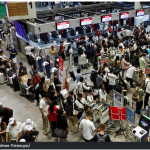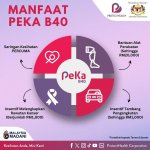Bismillahirrahmanirrahim. Assalamu’alaikum warahmatullahi wabarakatuh and a very good afternoon.
YAB Dato’ Seri Dr. Ahmad Zahid bin Hamidi, Deputy Prime Minister;
YBhg. Dato’ Tuan Ibrahim bin Tuan Man, PAS Deputy President;
Distinguished Guests, Ladies and Gentlemen;
1. Let me begin by thanking the organizer for inviting me to speak in this conference on the topic of ‘MANAGING ROHINGYAS IN MALAYSIA: ISSUES AND CHALLENGES’.
INTRODUCTION
2. The protracted humanitarian crisis in Myanmar’s Rakhine State is a cause of great and immediate concern to the international community. The Rohingyas, the most persecuted minority in the world, has for decades faced harsh treatment and made stateless by the Government of Myanmar. This ordeal has united us to seek solutions to the plight of the Rohingyas.
3. Despite generating worldwide concerns, Malaysia is one of the countries most affected by the influx of the Rohingyas. Malaysia was previously seen as a transit country but in the recent past, we have seemingly become a destination country. To highlight this, as of 31st January 2017, there are 44,659 Rohingya refugees and 11,476 Rohingya asylum seekers registered with the UNHCR in Malaysia. Unless a comprehensive solution is found, the number will continue to grow, which will inevitably have, grave impact especially on the regional geo-strategic landscape.
YAB Dato’ Seri, Ladies and Gentlemen;
MALAYSIA’S APPROACH IN MANAGING THE ROHINGYAS
4. As of 1st April 2015, 148 countries have become State Parties to the 1951 Convention relating to the Status of Refugees and the 1967 Protocol. In ASEAN, only Cambodia and the Philippines are State Parties to the said Convention and Protocol.
5. Although Malaysia is not a party to the 1951 Convention and the 1967 Protocol, the Malaysian Government, on humanitarian grounds, allows temporary stay for registered refugees, while waiting resettlement to third countries.
6. That said, Malaysia’s past experience in managing the Vietnamese boat people, the Acehnese and the Bosnians who sought temporary refuge in this country is a strong manifestation of the Government’s commitment in assisting people in need. Currently, we are dealing with a large influx of Rohingya displaced people who have fled Myanmar.
7. Rohingyas holding UNHCR cards are allowed, on humanitarian grounds to temporarily reside in Malaysia. This is unlike Rohingyas in other countries who are placed in camps and have to rely on external aids. In Malaysia, they are not placed in camps, free to move, assured the freedom of religious practices and continue to depend on UNHCR and NGOs for further support. Similarly, they will not be arrested or detained unless an offence under any Malaysian law has been committed. Resettlement to third countries or their voluntarily return are based on the principle of non-refoulement (no repartition to the country of origin unless agreed on).
8. It should be highlighted that Rohingya UNHCR Cardholders may seek medical treatment at any Government hospital or clinics at a nominal charge compared to other foreigners in general (50% of the rate stipulated for foreigners). Should any Cardholders find difficulties in paying for the medical expenses, a letter from the UNHCR to bear payment up to RM400 would be required. In the case of infectious diseases, the UNHCR Cardholders are entitled to free treatment and admission to designated wards in the hospital. Along the same line, vaccination for their children is given free of charge.
9. While UNHCR Cardholders are not allowed to enrol in public schools, they are able to have access to informal education within their own community schools or schools administered by NGOs.
10. The Malaysian Government has granted 300 Rohingyas permission to work under a 3-year Pilot Project beginning 1 March 2017.They will be placed in selected companies in the plantation and manufacturing sectors with the aim of providing necessary skills and financial resources pending their resettlement to third countries.
11. Malaysia’s efforts in championing the rights and welfare of the Rohingyas has recently (February 2017) received strong support from the Qatar Government. Earlier this year, Qatar announced the provision of financial aid for programs to assist the Rohingyas in Malaysia through the Qatar Development Foundation. Working closely with international and iocal NGOs, the fund will be utilized to address three fundamental aspects for the welfare of the Rohingyas, namely, vocational skills training, pre-school and primary school education and health care, which will create a positive impact.
YAB Dato’ Seri, Ladies and Gentlemen,
ISSUES AND CHALLENGES
12. Despite our hospitality to and solidarity with the Rohingyas, issues and challenges are abound arising from their ever increasing presence in Malaysia. These tests include a continuous flow of Rohingyas into Malaysia seeking refuge and asylum, tension exacerbating between Rohingyas with members of other ethnic groups of Myanmar in Malaysia and the local communities, the existence of fake UNHCR cards, the constant manipulation by human trafficking syndicates on these refugees, increasing number of unpaid medical bills accumulated and the spreading of infectious diseases borne by the Rohingyas.
13. The issue of allowing ‘UNHCR Cardholders’ including Rohingyas to seek temporary livelihood in the country is a complex issue that requires in-depth deliberations. Granted the already large number of illegal immigrants in the country, it is imperative for the Government of Malaysia to undertake a pilot project to avoid any perception of preferential treatment being accorded to the ‘UNHCR Cardholders’, as opposed to normal migrant workers who have to undergo various processes before acquiring a work permit.
14. We are also facing with a lingering problem on the resettlement of Rohingyas to third countries. Lengthy delays in the resettlement process would inevitably result in economic, social and security challenges to this country. A case in point, since 2005 to 2016, only a small number of 6,191 Rohingya refugees have been resettled to third countries at an average of 516 refugees per year. This state of affairs is further exacerbated with larger influxes especially in the recent past. We therefore, urge the UNHCR and State Parties to the 1951 Refugee Convention and its related Protocol to give serious consideration and attention and to promptly act on this matter. The primary responsibility in managing refugees should not be transferred to the non-state parties to the 1951 Convention and the1967 Protocol.
15. Malaysia takes cognizant of the clauses contained in the New York Declaration on Refugees and Migrants which was adopted by United Nations General Assembly during its 71st session on 19th September 2016. On that score, such initiatives should not unduly place non-signatory States to the relevant international instruments, like Malaysia, in a position inconsistent with the provisions of the Vienna Convention on the Law of Treaties.
16. We have and will continue to urge the international community to prioritize efforts towards ensuring peace and stability in the Rakhine State, Myanmar to afford their return and reintegration. In the case of the Rohingyas, their basic rights and access towards citizenship should be given paramount consideration. These are the root causes which must be addressed accordingly as it will produce a long lasting and durable solution to their plight.
17. In the meantime, we will continue to engage the UNHCR and other international organizations. Paramount to this assignation would be the availability of financial assistance for the provision of shelter, food, transportation, basic healthcare, education/training for the children of Rohingya refugees. This will also include critical medical treatment, for those in need, pending their repatriation to Myanmar or resettlement in third countries.
YAB Dato’ Seri, Ladies and Gentlemen,
CONCLUSION
18. Let me conclude by saying that solutions to the Rohingyas’ plight will not come easy and would compel leaders of the world to act in concert. To effectuate this, we need to share the burden and responsibility especially among theState Parties to the 1951 Convention relating to the Status of Refugees and the 1967 Protocol. I strongly believe that the formulation of various strategies by this Conference would assist in paving the way towards resolving this issue comprehensively.
19. The Malaysian Government believes that it is crucial to take a holistic approach in addressing the Rohingya issue, which would include measures to address the state of displaced Rohingya people across the region. We will continue to implore the international community, especially countries neighbouring Myanmar and nations at large, to render necessary assistance to the Rohingyas and result in a lasting solution to this tragic problem.
20. Finally, I would like to reiterate that the root causes of the Rohingya problem must be urgently addressedin its entirety. This would entail, among others, the termination of conflict, the restoration of citizenship, the guarantee of acces to their basic rights, the provision of capacity building for local communities, the placement of economic incentives that will create more jobs, the establishment of anti-trafficking training and the promotion of safe migration. Needless to say that the concerted efforts of the international community in addressing the depressing circumstances in Rakhine State and the frightful plight of Rohingyas will ensure that a catastrophy of global proportion will be averted.
Thank you.
National Security Council
Prime Minister’s Department
March 2017






